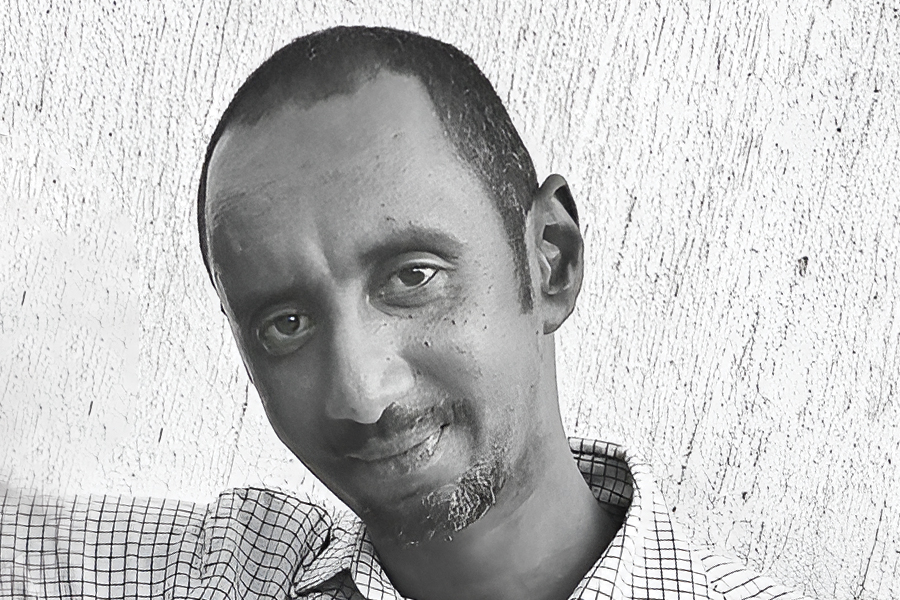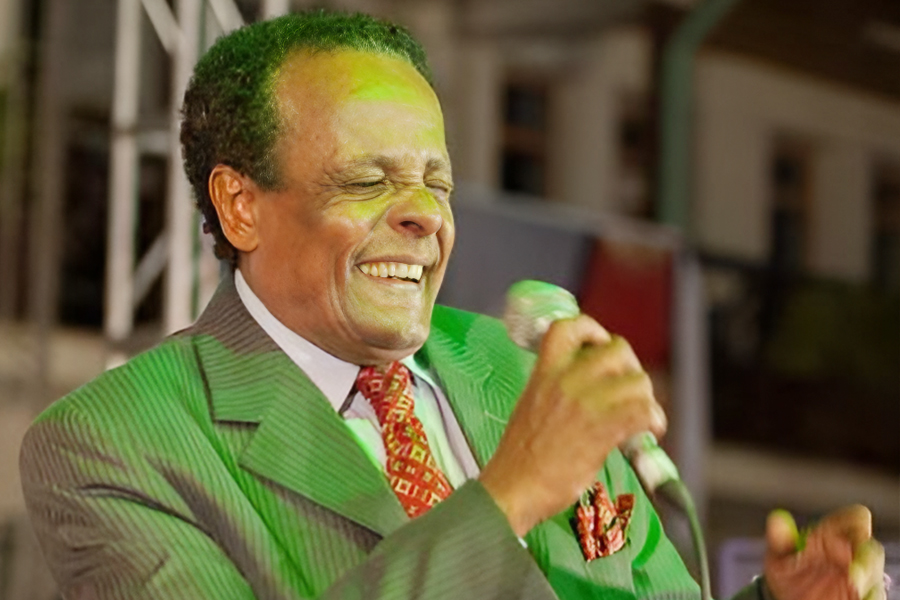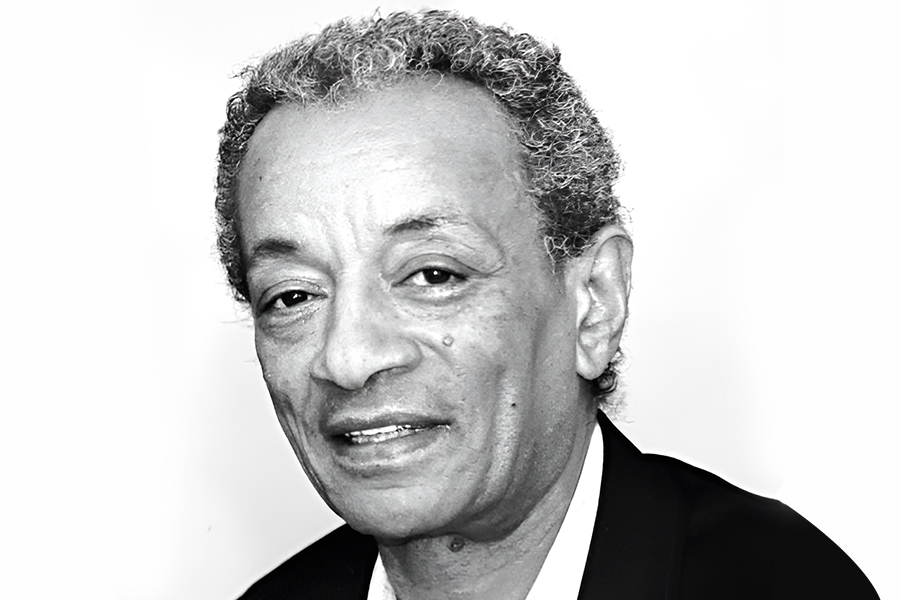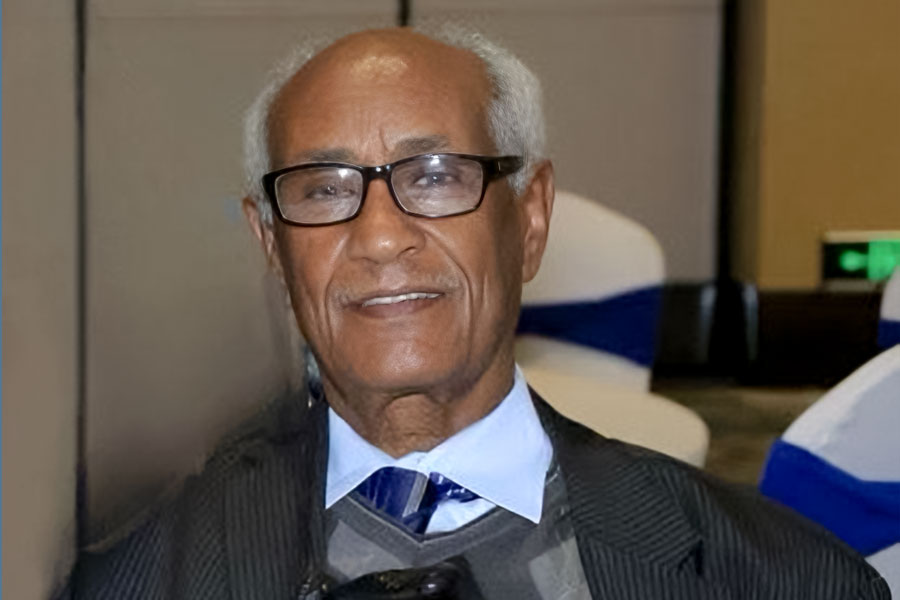
In the quiet of his later years, Muluken Melesse found solace in the gentle sounds of the waterfall from the stereo, transported by the melodies to a breezing stream beside him. Born in 1951 in Gojjam province, Amhara Regional State, Muluken's life embraced music as comfort in his youth, blossoming into fame and pinnacling in a spiritual awakening. His father, Tamir Tiruneh, was a man of faith who regularly took Muluken to a church.
Though it would not fully resonate until later, these early experiences planted the seeds of spirituality in him. Losing his mother at a young age, Muluken turned to music for comfort, honing his singing talent in an orphanage. When he came to Addis Abeba at age six, his uncle "Melesse" registered him in school under the new last name that would stay with him forever. In one of his interviews, he later admitted that this was one decision he regretted.
Muluken's rise from a teenage performer in local clubs during the 1960s to a celebrated artist at the prestigious Hilton Hotel encapsulates a transformative era in Ethiopian music. His journey began at the tender age of 12, when his voice bore the weight and perspicuity that would later define his career. His earliest hit, "Enate Sitwoldegne Mech Amakerechign," which translates as "my mother did not ask my consent for my birth," captured the ethos of its time when it frequently filled the airwaves, becoming a staple on public radio.
The song’s themes — melancholic, jittery, and contemplative — reflected the mood of a generation on the cusp of traumatic social and political shifts. His music not only entertained but also offered a form of commentary, mirroring the lives and struggles of his listeners. Other tracks such as "Mewdeden Wededkut," "Hagerwa Wasamegena," and "Nanu Nanu Neyi" further cemented his status, resonating deeply with audiences and securing his place as a figure in the music scene.
Throughout his career, Muluken’s knack for weaving existential and everyday life into his lyrics invited his audience to a shared experience of introspection and cultural reflection, marking him as a voice of a generation besotted by their identity and place in a rapidly changing society.
His career flourished in the 1970s and 1980s, coinciding with a military regime where artistic expressions were heavily censored. The cadres of "Socialist Ethiopia" found it convenient to their cause to weaponise art in broader terms and music in particular to mobilise and galvanise the masses. Filled with themes of love and hope, Muluken's music resonated with a country yearning for better days. Partnerships with lyricists like Alemtsehay Wodajo propelled his popularity.
Alemtsehay describes Muluken as a meticulous performer who dissects lyrics, melody, arrangements, and harmony. She admires his straightforwardness and creativity in adapting lyrics, even blending them with those in the public domain. Muluken never accepts lyrics verbatim but reshaped them to suit his style. Alemtsehay conceded that she lacked comfort in claiming some of the lyrics he played wholly as hers.
Many saw Muluken as a person of unwavering principles. He refused to compromise his integrity, famously insisting on fair compensation for his work during the rise of music videos. This uncompromising position, often misinterpreted as arrogance, appeared to stem from his deep sense of self-worth and appreciation for his craft. His strong self-worth extended to his performances. He would not go on stage if he felt the audience was not dressed appropriately for the occasion.
Suraphel Gizachew, a.k.a DJ Phatsu, recalled Muluken's high standards through their conversations about the past.
"He had class," said Suraphel.
Muluken was authentic. He was not cowed to be outspoken about the limitations of popular musicians while admiring those he deemed truly great, sometimes sparking controversies. He particularly enjoyed the works of Menelik Wossenachew, Teshome Mitiku, and Zeritu Kebede. In one of his interviews, Muluken recounted being captivated by Zeritu's voice, praising her as a shining star who emerged after a long wait.
The feeling was mutual, as Zeritu, who grew up listening to his music, cherished the opportunity to meet her idol. She spoke of his across-the-board admiration among fans and fellow musicians for his talent and exceptional musicianship.
At the peak of his stardom, Muluken began to wrestle in the 1970s with existential questions about his place in the world and the future. While his music offered solace and hope to a country in turmoil, a deeper calling stirred within him. A sermon by a preacher who extolled the vocal cords as God's greatest instrument for worship left a lasting impression. The message echoed deeply with Muluken, prompting him to reflect on how he used his voice in the service of the deity.
This introspection, coupled with his growing faith, ultimately led him to convert to Evangelical Christianity in the late 1970s. While he continued performing secular music, the preacher's words reverberated. After close to seven albums and 17 years in the industry, he eventually abandoned secular music, focusing on gospel songs within the church community. During this time, he met Abitew Kebede, a former musician who shared his spiritual path. Abitew describes Muluken as a consecrated individual who sought eternal life and found it.
"He took his first breath in the heavens as he breathed his last on earth," he said.
Throughout his life, Muluken remained dedicated to his faith and principles. His long battle with illness did little to dampen his spirit or commitment to artistic integrity. He was known for his insistence on giving credit where due, a value he passionately demanded from others, including the younger musicians who performed his songs.
Muluken's musical legacy continues to resonate across generations. His ability to blend inspiration with personal expression made him prominent in the art community and beyond. His music crossed generational lines and upheld a standard of authenticity and dedication that left a lasting impact on those who knew him personally.
Muluken, who emigrated to the United States in the mid-1980s and settled in the Washington, D.C. area, passed away on April 9, 2024, at age 73. Survived by his wife and three children, his departure marks the end of an era for a generation of the 1950s known for its rebelliousness toward injustice and characterised by its selflessness, sacrifices, and restless drive for social change.
PUBLISHED ON
May 03,2024 [ VOL
25 , NO
1253]

Obituary | Nov 09,2024

Fortune News | Sep 21,2019

Obituary | Mar 02,2024

In-Picture | May 12,2024

Obituary | Sep 14,2024

Films Review | Jan 03,2021

Obituary | Jun 15,2025

Obituary | Jun 17,2023

Obituary | May 31,2025

Obituary | Feb 10,2024

Dec 22 , 2024 . By TIZITA SHEWAFERAW
Charged with transforming colossal state-owned enterprises into modern and competitiv...

Aug 18 , 2024 . By AKSAH ITALO
Although predictable Yonas Zerihun's job in the ride-hailing service is not immune to...

Jul 28 , 2024 . By TIZITA SHEWAFERAW
Unhabitual, perhaps too many, Samuel Gebreyohannes, 38, used to occasionally enjoy a couple of beers at breakfast. However, he recently swit...

Jul 13 , 2024 . By AKSAH ITALO
Investors who rely on tractors, trucks, and field vehicles for commuting, transporting commodities, and f...

Jul 12 , 2025
Political leaders and their policy advisors often promise great leaps forward, yet th...

Jul 5 , 2025
Six years ago, Ethiopia was the darling of international liberal commentators. A year...

Jun 28 , 2025
Meseret Damtie, the assertive auditor general, has never been shy about naming names...

Jun 21 , 2025
A well-worn adage says, “Budget is not destiny, but it is direction.” Examining t...